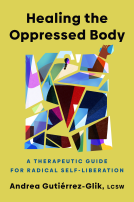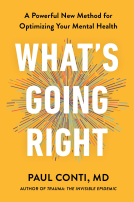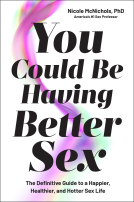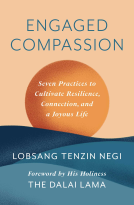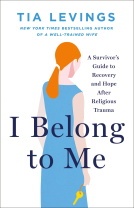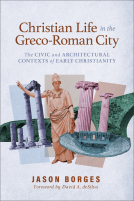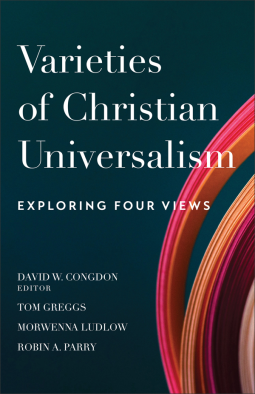
Varieties of Christian Universalism
Exploring Four Views
by David W. Congdon
This title was previously available on NetGalley and is now archived.
Send NetGalley books directly to your Kindle or Kindle app
1
To read on a Kindle or Kindle app, please add kindle@netgalley.com as an approved email address to receive files in your Amazon account. Click here for step-by-step instructions.
2
Also find your Kindle email address within your Amazon account, and enter it here.
Pub Date Nov 07 2023 | Archive Date Nov 20 2023
Baker Academic & Brazos Press | Baker Academic
Talking about this book? Use #VarietiesofChristianUniversalism #NetGalley. More hashtag tips!
Description
In this book, leading experts on universal salvation--David W. Congdon, Tom Greggs, Morwenna Ludlow, and Robin A. Parry--provide a concise guide to four distinct approaches: patristic, evangelical, post-Barthian, and existential. The contributors, who have each written extensively on Christian universalism, highlight distinct approaches that emphasize different theological values. The book will be useful as a textbook for students of theology, especially those training for ministry, and as a resource for anyone seeking a more well-rounded understanding of Christian universalism.
Advance Praise
“In this very readable, compact volume, David Congdon brings together deep thinkers to broaden our understanding of the varieties of Christian universalism, from the early church fathers to the present. The result is a highly instructive and clear-eyed analysis of one of the most important and most complicated teachings in the Christian faith.”—Amy Marga, professor of systematic theology, Luther Seminary
“The title of this book is invitational, as are most presenting multiple views or the variations of perspectives on theological topics, but those who pick up and read will be introduced to four strong sets of arguments by thinkers who have been exploring these matters substantively over extended periods of time. In other words, and in short: come ready to engage with the warrants and justifications for these various universalist options, and if you do, you might become a better theologian, if not a better Christian, even if you remained unconvinced about becoming a universalist in any of the ways invited to in these pages.”—Amos Yong, professor of theology and mission, Fuller Theological Seminary
“Caricatures and misrepresentations often fuel theological debates, especially on controversial themes such as Christian universalism. These essays offer clarity on the variety of universalist theologies in response to the perennial question of Christian universalism, at a time when this debate is again having a moment and in a way that does not offer a definitive conclusion but provides the conditions for a real conversation.”—Aristotle Papanikolaou, professor of theology, Archbishop Demetrios Chair in Orthodox Theology and Culture, cofounder and codirector, Orthodox Christian Studies Center, Fordham University
“A helpful overview of four theological varieties of Christian universalism: patristic, evangelical, post-Barthian, and existential. The patristic chapter stresses the christological foundation of universalism and includes debated universalists such as Maximus, who pointed to apokatastasis, as also Balthasar and I have argued. This volume will be interesting to Christian readers in general, to students in religious studies, and especially to those in theology and ministry. It will help readers distinguish, in a broad but useful way, the theological presuppositions and developments of various accounts that are often referred to with the umbrella term ‘Christian universalism.’”—Ilaria L. E. Ramelli, professor, Stanford University; University of Cambridge
Available Editions
| EDITION | Other Format |
| ISBN | 9780801095764 |
| PRICE | $24.99 (USD) |
| PAGES | 208 |
Available on NetGalley
Average rating from 3 members
Featured Reviews
"Varieties of Christian Universalism" by David W. Congdon, accompanied by esteemed contributors, offers readers a rich and comprehensive exploration of the multifaceted realm of Christian universalism, accompanied by several distinct benefits. As readers engage with this book, they stand to gain a profound and well-rounded understanding of Christian universalism. Through an in-depth examination of four distinct theological approaches, the book illuminates the theological values and interpretations that underpin each perspective, revealing the captivating diversity of thought within the universal salvation paradigm.
This resource is particularly valuable for theology students and individuals in ministry training, as it not only enhances their theological knowledge but also equips them with a nuanced grasp of universalism's various expressions. Furthermore, the book encourages readers to actively engage with the compelling arguments and justifications presented by seasoned scholars, fostering critical thinking and theological reflection. This engagement ultimately empowers readers to become more adept theologians and better-informed Christians.
Moreover, "Varieties of Christian Universalism" extends an invitation to readers, whether they are firmly committed to universalism or merely curious about this theological concept, to embark on a journey of thoughtful reflection on matters of faith. In doing so, the book expands their perspectives and encourages open dialogue, providing a space for the exploration of faith and the deeper understanding of this intriguing theological discourse. In essence, this book promises to be a transformative and enlightening resource, offering readers a wealth of knowledge, critical insight, and expanded faith perspectives.
As a layperson with no formal theological training I was not the intended audience for this book, but I'm so grateful that Brazos Press gave me an opportunity to read it anyway. I'm what the authors describe as a "hopeful universalist" and it was helpful to have language to put with my ideas (even if that language was intimidating and had me turning to the dictionary every third sentence.) I think that pastors and theologians will appreciate the thought and research that went into this book. Each section of the book is written by a different author and although the tone of the writing varied, each author addressed their section with deep, nuanced arguments and explanations. I appreciated that the authors laid out the origins of each school of thought and provided additional resources for anyone seeking more information.
Readers who liked this book also liked:
Justin R. Garcia
Health, Mind & Body, Nonfiction (Adult), Parenting, Families, Relationships
Nicole McNichols
Health, Mind & Body, Parenting, Families, Relationships, Self-Help


